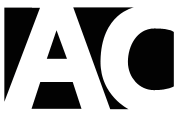As a freelance writer, I’ve researched hundreds of books in my career. When I write one eBook, for example, I usually read anywhere between three and ten books just for background research, not to mention the dozens of websites I visit, articles I read and email lists I subscribe to.
This can be very time consuming and can make meeting short deadlines very difficult. So over the years I’ve developed a handful of strategies for streamlining my research processes and extracting only what I need from any one book as fast as possible.
Tip #1 – Use an Organizational Tool with Cloud Backup
I use Evernote for all of my note taking. It doesn’t have to be Evernote, but the tool you use should sync to the cloud so you can access your notes on any device or computer you use to write. Google Drive is equally useful for this reason.
The reason for this is simple – these note taking tools allow you to create notebooks, organize notes by types, and have instant access to them anywhere.
Tip #2 – Buy Print Books and Write in Them
Maybe it’s just me, but I’ve always had an easier time flipping back and forth in a print book than in an eBook. Unless you live in a rural area and have no access to bookstores, I always recommend buying print books.
Pass the price along to the client or write it off on your taxes, but it’s well worth buying the books and writing in them to have permanent notes. I do, however, use Kindle to download samples and review the tables of contents before buying anything for research.
Tip #3 – Don’t Write from Your Notes
While your notes may be extremely detailed, never write from them when you go to create an article or eBook. The purpose of notes is to have reference points later. If you write FROM those notes, you’re just plagiarizing the books you read.
Instead, create your outline from the compilation of your notes and reference notes when you need a fact or figure for quotation.
Tip #4 – Write an Outline Early and Build Around It
Writing an outline early will make it much easier to avoid the plagiarism trap that many writers fall into when using their notes during the composition process.
Do your core research and then create an outline. From here, only research the points you’ve included in your outline. If you know you need a specific fact or figure you can target your research and save a lot of time – read one chapter in that book instead of the entire book.
Tip #5 – Find 3-5 Unrelated Resources
Don’t buy one book then buy every book that book references. Look for three, four, or even five completely unrelated resources in the niche. While most major books will likely reference each other in some capacity, you want to get diverse opinions on a topic.
I will usually buy 2-3 major authority resources on a topic, then grab 4-6 additional books from lesser known writers that are still considered very well written. I’ve even downloaded a few Kindle-only resources to get additional perspective on a topic.
When done right, research can go much faster than if you were to fully read five to ten books before you start writing. The depth of detail in any given project will ultimately determine how much research is needed, but with these tips you can get started faster if nothing else.






Anthony,
Regarding #3, are you saying to write from what’s in your head based on the knowledge you have gained by writing notes, correct?
Also, if you were going to write a 1000 – 1500 word article on a topic you don’t know much about, how much research would you do? Would you still be buying books or mainly read articles, etc. from the web? I assume the process is the same, just not as extensive, correct?
Thanks
Great questions Jon,
Usually what ends up happening is I have spent enough time writing about a topic and researching it that I have a good idea of what I’m writing (in books and white papers). However, when I need a fact, figure or quote, or if I’m stuck on a topic, I’ll reference my notes. I try not to be looking at notes while writing to avoid that accidental regurgitation of ideas from someone else’s work.
And you’re spot on about articles. I still do quite a bit of research for a 1,500 word article or blog post, but I rarely buy books on that topic unless I know I’ll be writing extensively on it. Of course, usually when writing an article, I’m either writing about a topic I’ve already covered (and therefore have notes and research on it already in Evernote) or I’m going to be writing about that topic multiple times in the future, so I will buy books as I would for an eBook project.
Cheers!
~Anthony
Anthony,
Thanks for the reply and the really good posts.
I just want to clarify something. Let’s say I have no real knowledge about my topic. After reading from a number of sources and taking notes, I then write an outline, correct? Then I start to write the content from the knowledge that I have gained but without referring to notes, right? Thanks for your help.
Jon
Thanks Jon! Really appreciate the feedback.
That’s more or less my process. It’s impossible to ever get it 100% right with a brand new topic, so usually when starting a new project or writing about something new to me, I build in as many feedback loops with the client as I can.
So yes, things like outlines to start, a couple pages as a sample, specific questions for the client or editor, just to be sure they can tell me as soon as possible if I’m on the wrong page. It’s a huge help and it guides me as I finish a project up.
Thanks again!
~Anthony